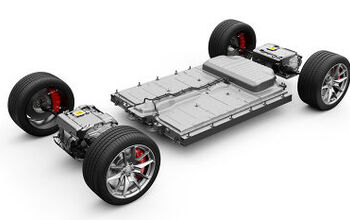Ford: UAW Wages Still $8 Higher Than The Competition
Ford is tooling up for what is likely to be a tough UAW contract negotiation in light of its return to hefty profits. And in hopes of shifting the conversation from its strong financial performance, Ford is highlighting the fact that it still pays $8 more per hour than its competition. Of course, there has been improvement, as Ford notes at its fordahead.com website
Ford’s average hourly cost per employee for wages and benefits in the U.S. reached about $75 per hour in 2007, prior to the negotiation of a new national contract. By negotiating an agreement with the UAW that year, and by adding modifications in 2009, we were able to substantially improve the competitiveness of our labor costs. Had we not reached this agreement, our average hourly wage rate would have remained simply unsustainable — and utterly uncompetitive — and Ford would not be in a position to create new jobs or bring new work into our U.S. plants.
But Ford has only itself to blame for some of those higher labor costs, as some $2/hour of its labor cost disadvantage is a result of its record-high profit-sharing checks, according to the DetNews. And, says Ford, once new “second tier” hires enter the Ford workforce, it expects wages rates to drop to parity with the transplants. In short, Ford is making the case to stay the course, working through existing contract changes to get to parity with the transplants. But given the fact that Ford is already making hefty profits, don’t expect the UAW to simply roll over. The battle lines have been drawn… but nobody knows how the conflict will actually play out.
More by Edward Niedermeyer

































Comments
Join the conversation
If the story was as simple as that graph implies, you'd think the transplant workers would be rioting in the streets. But they aren't. Hmmm - Hey Bob King, there must be something more to the picture.
@gslippy....You got that right. The whole transplant vs UAW/CAW is far more complicated than a simple graph. The transplant workers seem contented with thier wage/benifit package,and working conditions. They do not need, or want, the UAW/CAW to represent them. Me thinks that Mr King has this figured out...maybe? The 2011 negotiations have even started yet. Just like a couple of prize fighters.theres a whole lot of trash talking from the sidelines. As I see it "trash talking" and rhetoric is an area the Bob King excells in. Maybe the only area.
That doesn't take into account that foreign automakers (such as those in Germany) have higher wages in their home market and I'll bet a good part of that $6 discrepancy is due to healtchare costs w/ Ford having older workers (also have to take into account the cost of living - a good bit cheaper in the South where many foreign automakers have their assembly plants). W/ regard to comparing executive pay, VW had a banner year in 2010, earning a net profit of $9.9 billion compared to Ford’s $6.6 billlion. But despite earning additional corporate profits by the tune of $3.3 billion, VW’s CEO “only” took home HALF of the pay ($12.9 million) that Mullaly was awarded. Furthermore, VW has amassed a warchest of over $30 billion while Ford is still deep in the red. But then again, this is nothing compared to what the CEO of the money-losing auto-supply firm, Visteon, earned in 2010 - earning about $26.9 million in total compensation. Not bad coin for leading a company into Chapter 11 bankruptcy.
I'd like to see a breakdown of these labor costs. From what I understand, they reached that $70/hour figure by taking total payments to UAW employees and dividing them by total hours worked. Makes sense at first, until you realize that includes pension and health benefits paid to retired workers. Takes some balls to say a guy on the line is overpaid when you're figuring money paid to a retiree as part of his compensation. Transplants don't have the retirement obligations of the domestics, not having been around as long.